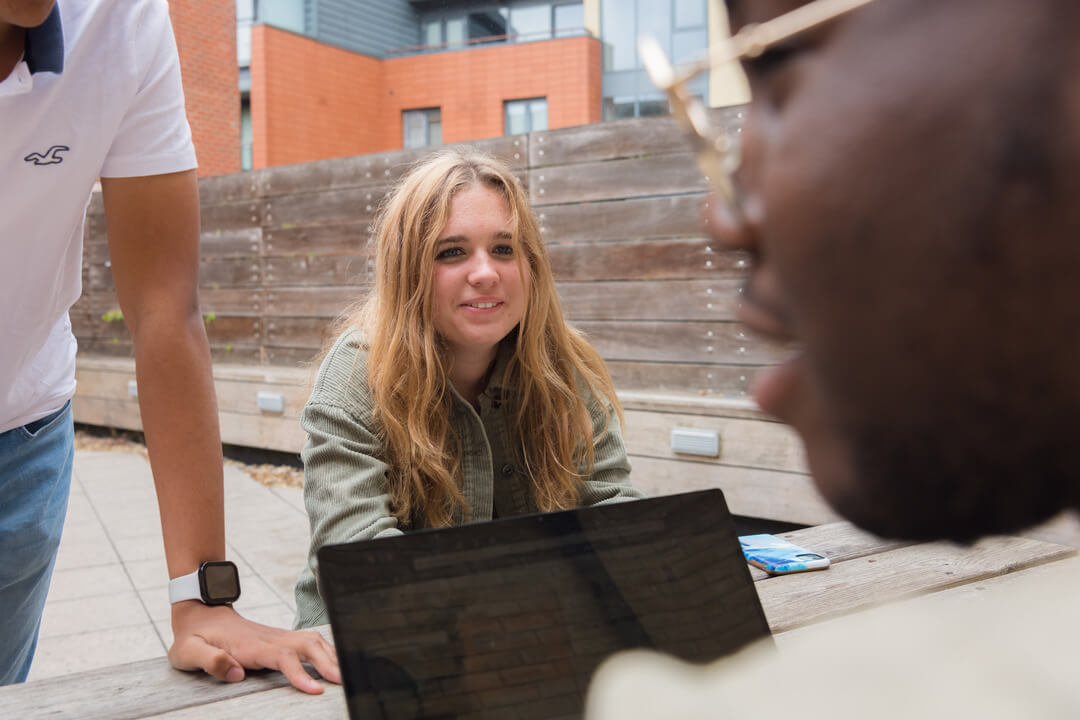Whichever subject you want to study at university, or whichever career path you want to pursue, networking is one of the best ways you can increase the depth of your knowledge and prepare for your future success.
With everything moved online, from regular classes to subject-specific conferences and summer schools, you can be forgiven for thinking there’s no way to make connections with experts and other students in your discipline at the moment.
In fact, it can be easy to forget that the head and shoulders floating on your screen is an actual person at all. If you simply drift through online classes and events with one eye on TikTok though, you’ll miss the wisdom and opportunities your teachers, mentors and peers could offer you.
With limited opportunities to form organic connections, we break down some different ways you can build your network from your laptop. Give them a try, and then stick with the ones that add the most value for you.
Establish and Maintain Your Online Presence
With the recent shift to the virtual world, many opportunities have made an online transition. Our Oxford Scholastica online courses and internships are just a few examples of this.
This means it’s important to get comfortable online, making yourself as available and accessible as you would be in person. This might include setting up accounts with different professional communication platforms (e.g. Zoom, Skype, Microsoft Teams, etc.) and fleshing out your profile on each. You could:
- Choose an appropriate and professional profile picture and display name
- Set your hours/availability if there is an option to do so – let people know when you are free, and when you are not
- Set up notifications so you don’t miss an important email, message or call
- Organise your emails with folders, filters and flags so you can find things easily
- Pay attention to the availability feature on most apps/websites – you can often set your profile to green, amber or red to indicate your availability throughout the day
- Reply to emails and messages promptly and politely – even if it’s something you’re not interested in
One perk of online events is that you can organise everything in one place. Most email providers have a calendar feature that you can use to set reminders for upcoming meetings, application deadlines and other commitments.
You also have lots of control over your first impression online, meaning you can foster positive connections from the very start. The more your virtual presence grows, the more important it will be to maintain this impression.
Conferences, Lectures and Podcasts
Now more than ever, it’s important that you “show your face” at different events – even if it’s through pixels. It can be hard to familiarise yourself with the names and faces of your peers and tutors if you haven’t spent much time in-person with them, so you should make an effort to attend meetings and talk to everyone in your group.
Conferences are a great starting point to expand your professional network virtually. Make sure to write notes as you’re watching presentations, so you can ask lecturers and other viewers questions afterwards and make the most of your experience. Lecturers may even give you a way to contact them (e.g. email) if you have any follow-up questions – this can be a great way to network!
You can also take the initiative and invite your fellow attendees to a breakout room, or a smaller group session, after the conference. This way you can share notes, discuss what you’ve learned or just make new connections. Don’t be afraid to ask for emails or social media accounts if people are willing to give them – and make sure to follow up!
The same can be said for live podcasts, meetings and other events. Asking questions is a great way to get to know someone and to make yourself known.

Academic Groups and Online Communities
Connecting with other students is important. You should be able to discuss work, hobbies and socialise with others. Social media apps and emails are a great way to connect with people you already know, but forming those relationships in the first place can often be difficult.
Consider joining academic groups or other online communities instead. Facebook is a great place to see upcoming events and join community pages that interest you. You might like our Oxford Scholastica Academy Facebook page, for example, which allows you to keep up with our latest news and meet like-minded people.
Other communities to consider are university pages for prospective students, subject-specific pages (e.g. creative writing groups in your local area), and magazines/publications in your field. There are lots of opportunities to make friends and share knowledge online, but always be sure to follow online safety guidelines, and never agree to meet up with people you met online without telling a parent or trusted adult.
Find New Ways to Follow Up
Once you’ve made new connections, you need to make sure you’re getting the most positive experience you can from your network. Email exchanges are reliable but can get boring, so why not suggest a Zoom coffee morning for your next meeting, or attend online extra curricular activities with friends – e.g. poetry readings, writing workshops, debates or art classes.
Try to keep your online learning, networking and socialising engaging so that you’re having a good time and staying motivated to continue building your network.
What Next?
- Take a look at our “How to Write a Great CV/Resume” guide, to make sure your CV is the best it can be before you send it to your new connections
- Find out how to make the best first impression on LinkedIn in our blog post
- Follow Oxford Scholastica Academy on LinkedIn and start networking!





